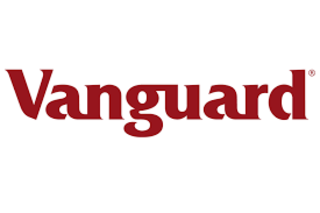Dollar Scholar Asks: What Are Some 'Rich' Financial Habits I Can Adopt?

This is an excerpt from Dollar Scholar, the Money newsletter where managing editor Julia Glum teaches you the modern money lessons you NEED to know. Don't miss the next issue! Sign up at money.com/subscribe and join our community of 160,000+ Scholars.
Spanx CEO Sara Blakely drives a fake commute. Goop CEO Gwyneth Paltrow meditates with her eyes open. Los York CEO Seth Epstein eats three peeled hard-boiled eggs upon reaching his desk every morning.
The habits of successful people are strange, to say the least. But at the same time, they've got to be doing something right. Right? (They're certainly not waiting impatiently for the next Bath and Body Works candle sale so they can restock their supply of eucalyptus spearmint single-wicks.)
While I'll skip the open-eye meditation, I've been thinking lately that there must be ways I can copy the affluent blueprints of ultra-high-net-worth — or UHNW — Americans.
Wealthy people...
…know how to differentiate and prioritize.
According to Mary Clements Evans, author of Emotionally Invested, wealth is linked to four factors: what I earn, what I spend, what I save and what I invest. To make sound financial decisions, I need to manage those four areas.
"One thing I've noticed with all my clients that are well-off [is] they definitely know the difference between needs, wants and wishes," she says.
Clements Evans says affluent people also tend to categorize their needs: If they have a 10-year-old car that's just running fine, they know to classify a new one as a want rather than a need. They also rank them: If they want a new car but also have been eyeing a bathroom renovation, they decide which they want more and narrow in on it.
…are frugal when they can be.
In Tom Corley's 2009 survey of 233 millionaires, 64% said they have "modest" homes, and 55% said they prefer to buy used cars.
…stick to a plan.
Jeremiah Barlow, head of wealth solutions at Mercer Advisors, tells me his UHNW clients all share a long-term view — they know what their goals are and exactly what steps to take to accomplish them. This strategy prevents his clients from reacting to day-to-day headlines in a rash manner that could hurt them later.
"They have perspective into what they want to accomplish, what are the landmines, what are the unknowns and what is the plan to solve for that," Barlow says.
In short, rich people need to budget, too. Todd Kesterson, principal with Kaufman Rossin, tells me that in a previous role he would sit down with a wealthy family every year to make their annual budget. They'd outline upcoming expenditures for each person — clothing, travel, household employee costs, et cetera — so they had guidelines to work within.
"They used it as a family education and planning tool," Kesterson says. "Then we had a quarterly meeting, and we reviewed the budget-to-actual [analysis] from the previous quarter."
I can adopt this, too, by adopting budgeting best practices.
…do the math.
Kesterson's affluent clients also generate a rolling cash forecast, which involves using data to predict what they think their businesses and investments will earn in the next 12 to 24 months and compare it to their spending.
"Frankly, we get a lot of clients [who] come in and say, 'OK, I know I make $2 million, $3 million a year in income. And I also know at the end of the year, none of it's left,'" he says. "When they hire us, we start coding every transaction and building a profit and loss statement."
Sometimes, just sitting down and doing this simple analysis can inspire big revelations.
…get professional help.
Rich people tend to outsource. They don't have the time or desire to comb through the complexities of real estate, equity compensation, estate planning, investment strategies, saving for college and such.
So they bring in professionals.
A June 2024 survey found that three-quarters of people with at least $500,000 in investable assets worked with a financial advisor; 89% of them said their advisor helped them generate more wealth than they could have solo. What's more, a separate study found that two-thirds of wealthy Americans with advisors actually had multiple people telling them how best to use their money, including attorneys, accountants and private bankers.
This strategy is easy to mirror. Banks and credit unions often have staffers who can offer customers financial advice. I can seek out pro bono services through community groups or organizations like the Foundation for Financial Planning and Savvy Ladies. Or I can pay to connect with a(n ideally fee-only) advisor.
"It is within your means, and it actually is beneficial to you," Barlow says.
More from Money:
Dollar Scholar Asks: What Money Moves Should I Make in My 30s?
Dollar Scholar Asks: When Does It Make Sense to Bank in Person?





